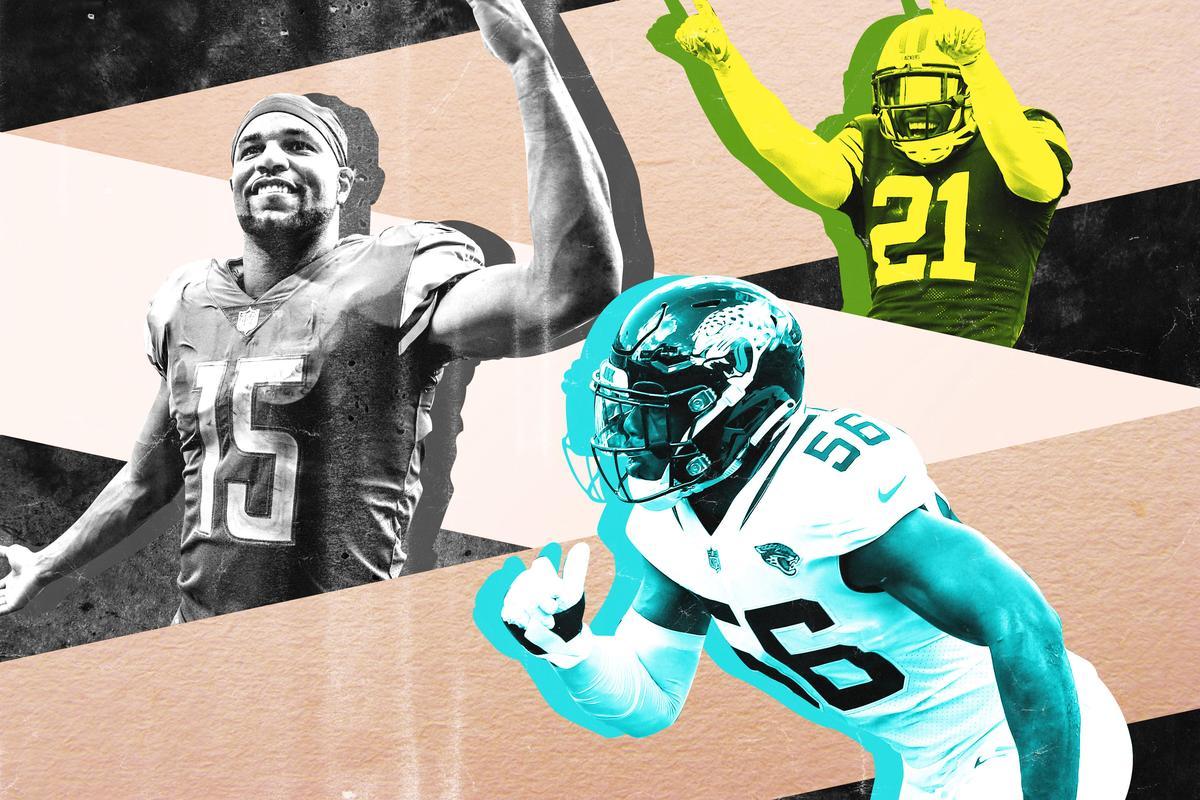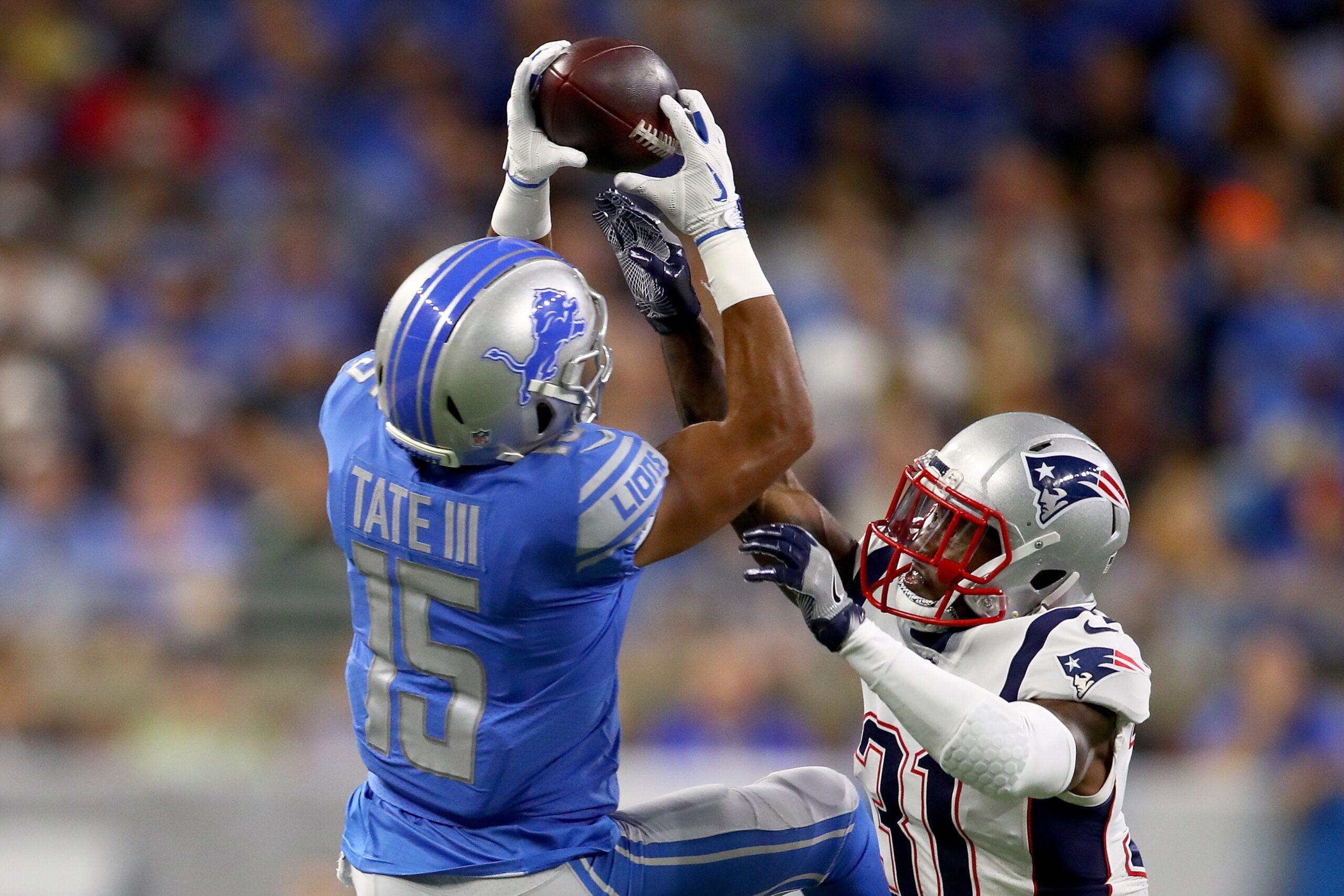A Flurry of Trades Made the Deadline Fun, but It Didn’t Create New Super Bowl Contenders
There are many reasons for the league’s increased activity around the trade deadline. But while several teams stockpiled for a playoff push, this season is shaping up to be a four-team race to the finish line.
In 2016, this website envisioned an NFL trade deadline that wasn’t a massive bore. The following year was the most active deadline ever. This year it was supposed be more active than last year. What happened Tuesday was not just about learning which teams got better or worse (more on that in a bit), it was about what the trade deadline is even supposed to mean in a rapidly changing NFL. We know what to expect in most sports. In the NBA, sometimes a Serge Ibaka–level player gets shipped, but the superstar players who determine championships stay put. In baseball, jargon like “big bat” gets thrown around, and every few years a legitimate star like Manny Machado switches teams. The NFL is in uncharted waters—it simply did not care about the deadline for decades. Bill Polian once told The New Republic that it was too hard to find “system fits” at all, let alone during the season, for trades to take place.
Beginning with the Dallas Cowboys’ trade for receiver Amari Cooper last week, this year’s deadline was, perhaps more so than ever, a subject of fascination among fans. Jay Glazer reported last weekend that teams were inquiring about superstars like Odell Beckham Jr. By the end of it, there was no singular takeaway. Among the league’s best teams, only the Los Angeles Rams made a deal, and there was no fire sale among the worst teams. No superstars switched teams. The best player traded was probably Golden Tate—who is very good—but he’s not Beckham or Le’Veon Bell or LeSean McCoy or DeSean Jackson. If there was any winner at the trade deadline, it was Oakland Raiders head coach Jon Gruden. Trading Cooper for a first-round pick looks like an even bigger steal now than it did at the time, after seeing teams trade good receivers for mid-round picks Tuesday. (And it looked like a really big steal last week.) If anything, the deadline served to remind everyone of the outrageous price the Cowboys paid, to the point that Glazer reported early Tuesday that Cooper’s high price was preventing other deals from being made.
The question now is how Tuesday changed the NFL in 2018. Tate, who like Cooper, will get expensive after this season (albeit via free agency instead of a fifth-year option), went to the Philadelphia Eagles for a third-round pick. Demaryius Thomas went to the Houston Texans for a fourth-rounder. Non-receiver standouts like Green Bay’s Ha Ha Clinton-Dix went for a fourth (to Washington) and Jacksonville’s Dante Fowler Jr. went for a third and a fifth to the Rams. There are a couple of things to consider: First, the best players being added to a contender’s roster are not coming via trade. The Kansas City Chiefs (Eric Berry) and Los Angeles Chargers (Joey Bosa) are counting on the returns at some point of two superstars who have been sidelined all season due to injury. Those are the X factors that matter more than any right now. Also, several teams got closer to the playoffs. The 4-4 Eagles still have one of the deepest rosters in football and added Tate, a yards-after-catch god who can help correct some of their offensive inconsistency. In adding Clinton-Dix, Washington is pairing the two highest-graded safeties in the NFL together in the same secondary. The Texans added a weapon for Deshaun Watson (here’s hoping Thomas can play offensive line).
Tuesday’s deadline changed the playoff picture—the AFC South and NFC East are vastly different places than they were Monday—but not the Super Bowl picture. The thing missing from these trades is the ability to make these teams a true Super Bowl contender, which speaks to the talent of the league’s top teams. There is probably nothing Washington can do that will make it as good as the Saints or the Rams. The Eagles might have a ceiling just below Super Bowl contender, especially after Derek Barnett’s season-ending injury. Tate fits the profile of a player they want—the team detailed to me earlier this season that they think there’s a real advantage in bringing a player in short term to see if they are worth a long-term commitment. At worst, Tate will help Carson Wentz and the offense for half a season and position them to make a run in the NFC East. At best he’ll stay for another three years.

I am of the belief that barring something miraculous, the Chiefs, Rams, Saints, and New England Patriots will remain the top four contenders and no move made at the deadline has convinced me otherwise. I do not think Dante Fowler, ranked 34th among edge defenders by Pro Football Focus, is a big enough presence to materially change anything within the hierarchy of those great teams. It’s a good move—the Rams already rank third in the NFL in hurries and the price was right—but does not do much to separate them from the pack. The Rams were previously thought of as “all in” on 2018 and they just got more in. The Saints have been all in since the spring and have no cap space to throw more chips in the pot. This is the NFC—two teams sitting at the poker table calling up the deed to their house trying to raise the stakes even more. The Chiefs, rumored to be after Earl Thomas last month, didn’t overpay for secondary help. The Patriots traded Jamie Collins in 2016 and Jimmy Garoppolo in 2017, yet did nothing this year, when they had real needs. The Patriots wanted Thomas as well but wouldn’t match Houston’s offer.
There are many reasons trades are more possible in the NFL now: The salary cap rises by $10 million a year (and the fact first-round picks are cost-controlled), meaning teams can fit players under the cap easier. General managers who are less scared of their own shadow have realized that a mid-round pick is not as valuable as an above-average NFL starter. Teams who have a lot of talented young players (especially a quarterback) need to maximize their window while their stars are cheap and thus will use trades to build a team. There’s probably something in the rising simplicity of offenses—as teams switch to more simple, college-inspired schemes—that makes it easier for a player to switch teams. Aggressiveness is in and passivity, long the dominant mode for NFL teams, is decidedly out. The Eagles won the Super Bowl last year after making a series of aggressive moves—trading for Jay Ajayi during last year’s trade deadline among many others. The Rams, Chiefs, Saints and Patriots—the four teams likeliest to win the Super Bowl by odds—have all made seriously bold moves in the past calendar year. It’s a league operating like a Ricky Bobby fever dream—if you’re not first, you’re last.